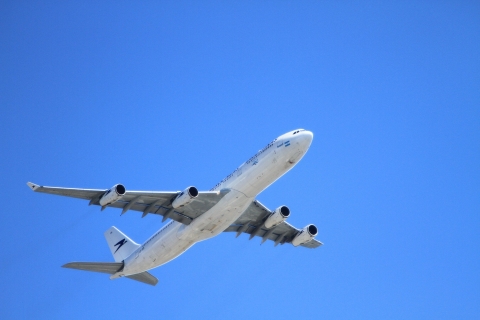New Report Predicts 4.6 Million U.S. Jobs Will Be Lost Due to Travel Decline

A new report from Tourism Economics shows that the impact of the coronavirus outbreak will have far-reaching consequences for the travel industry. The total economic loss is projected to translate into a total economic loss of $809 billion — more than six times worse than the world experienced post-9/11.
The report predicts that the U.S. economy will lose 4.6 million travel-related jobs as a direct result of the decline in travel, 3.6 million of which are estimated to be directly within the industry. Based on historical precedent, this will push the unemployment rate up to 6.3 percent in the second quarter of 2020. Highlights from the report include:
- Total U.S. spending on travel (transportation, lodging, retail, attractions and restaurants) is projected to drop by 31 percent ($355 billion) for the year.
- These losses are enough to propel the U.S. into a recession that is expected to reach its lowest point in Q2 2020 and last at least into early 2021.
- The projected 4.6 million travel-related jobs lost would alone nearly double the U.S. unemployment rate (from 3.5 percent to 6.3 percent)
- A 23 percent drop in international tourism is projected, equating to a $49 billion revenue loss — 13 times the impact of the 2003 SARS coronavirus outbreak and nearly double that of 9/11
At a March 17 meeting at the White House, U.S. Travel Association President and CEO Roger Dow urged the Trump administration to consider providing $150 billion in relief for the travel sector. He noted that 15.8 million Americans are employed by travel-related businesses, and 83 percent of those businesses are small enough to potentially fold without government aid.
During the same meeting, hotel industry leaders proposed immediate actions the government could take to help protect industry jobs and help small business owners. The top priorities from this group are retaining and rehiring employees, and helping keep hotels in business.
The Tourism Economics report estimates the hotel industry contributes nearly $660 billion annually to the U.S. GDP and supports 8.3 million American jobs — 1 in 25 — paying more than $97 billion in wages and salary income.
"This situation is completely without precedent," Dow said. "For the sake of the economy's long-term health, employers and employees need relief now from this disaster that was created by circumstances completely out of their control."
Read the full report here.
More Industry Petitions and Resources
The USTA isn’t the only organization pushing for relief for the travel and hospitality industry.
Representatives from Digerati Productions and AV Educate have created a petition calling for President Trump to provide a federal aid package for the events industry that would include emergency healthcare coverage, low-interest loans, grants, and unemployment benefits. Read more and sign the petition here.
The petition creators also started a Facebook group as a source of information and conversation for anyone in the events industry who has been negatively affected by COVID-19. Request to join here.
The U.S. Small Business Administration is offering designated states and territories low-interest federal disaster loans for working capital to small businesses suffering substantial economic injury as a result of COVID-19. Read more here.
Do you know of other relief efforts, funds, or grants available for members of the events or greater hospitality industry? Please let us know. Connect with us on Twitter or email [email protected].


Add new comment